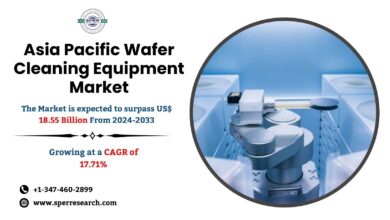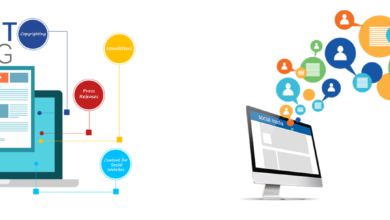10 Key Features to Look for in Chronic Disease Management Software
In modern healthcare, managing chronic diseases efficiently and effectively is crucial for patients and healthcare providers. Chronic disease management software is pivotal in streamlining processes, enhancing patient care, and improving outcomes. However, with numerous options available in the market, selecting the right software can take time and effort. To aid in this decision-making process, we’ve compiled a comprehensive list of ten key features to consider when considering chronic disease management software.
What is Chronic Disease Management Software?
Chronic Disease Management Software is a specialized technology solution designed to assist healthcare providers in effectively managing the care of patients with chronic conditions. It is a comprehensive platform encompassing various features essential for optimizing the treatment and monitoring of individuals with long-term health needs. This software typically includes functionalities such as patient data management, remote monitoring tools, care coordination features, clinical decision support systems, and patient engagement resources.
By leveraging these capabilities, healthcare providers can streamline workflows, improve communication among care team members, enhance patient outcomes, and promote proactive management of chronic diseases. Chronic Disease Management Software serves as a digital ally in the ongoing battle against chronic conditions, empowering healthcare professionals to deliver high-quality, personalized care to individuals with these complex health challenges.
10 Key Features of Chronic Disease Management Software
Interoperability and Integration:
Seamless integration with existing electronic health record (EHR) systems and other healthcare technologies is essential. The software should facilitate data exchange between systems, ensuring patient information is accessible and accurate across various platforms. Interoperability enhances care coordination, reduces duplication of efforts, and improves efficiency in healthcare delivery.
Customization and Flexibility:
Every healthcare facility has unique needs and workflows. Therefore, the software should offer customization options tailored to specific requirements. Flexibility is crucial for accommodating diverse patient populations and clinical practices, from customizable templates for care plans to adjustable workflows.
Comprehensive Patient Data Management:
Robust chronic disease management software should encompass comprehensive patient data management features. This includes functionalities such as patient demographics, medical history, medication management, lab results, and vital signs tracking. Access to real-time, aggregated patient data enables healthcare providers to make informed decisions and deliver personalized care.
Remote Monitoring and Telehealth Capabilities:
With the rise of telemedicine and remote patient monitoring, chronic disease management software must support these capabilities. Remote monitoring tools allow patients to track their health metrics from home, while telehealth features enable virtual consultations with healthcare providers. These functionalities enhance patient engagement, facilitate proactive intervention, and reduce the burden of in-person visits.
Clinical Decision Support:
Embedded clinical decision support tools empower healthcare providers by offering evidence-based guidelines, best practices, and alerts within the software interface. These tools assist in clinical decision-making, medication management, risk assessment, and adherence to clinical protocols. By leveraging decision support, providers can deliver high-quality, standardized care while minimizing errors and variability.
Care Coordination and Communication:
Effective care coordination is vital for managing chronic diseases, especially for patients with complex care needs and multiple providers. The software should facilitate seamless communication and collaboration among care team members, including physicians, nurses, specialists, and allied health professionals. Features such as secure messaging, task assignment, and care plan sharing promote interdisciplinary teamwork and continuity of care.
Patient Engagement Tools:
Engaging patients in their care is essential for promoting adherence to treatment plans, lifestyle modifications, and self-management strategies. Patient engagement tools integrated into the software, such as patient portals, educational resources, and appointment reminders, empower patients to manage their health actively. The software fosters patient engagement and improves outcomes and patient satisfaction.
Population Health Management:
Population health management functionalities enable healthcare organizations to analyze data at the population level, identify high-risk patients, and implement targeted interventions. The software should support population health analytics, risk stratification, and outcome measurement to optimize resource allocation and improve population health outcomes. By proactively addressing the needs of at-risk populations, healthcare providers can mitigate disease progression and reduce healthcare costs.
Security and Compliance:
Protecting patient data and ensuring compliance with healthcare regulations are paramount. The software should adhere to industry data security, encryption, access control, and privacy protection standards. Compliance with laws such as the Health Insurance Portability and Accountability Act (HIPAA) is non-negotiable. Robust security measures instill trust among patients and healthcare providers, safeguarding sensitive information from unauthorized access or breaches.
Scalability and Future-Readiness:
As healthcare evolves, so should the technology that supports it. Chronic disease management software should be scalable to accommodate growth, organizational needs changes, and healthcare delivery advancements. Additionally, it should be future-ready and capable of integrating emerging technologies such as artificial intelligence, predictive analytics, and genomics into its framework. Scalable and adaptable software ensures long-term viability and facilitates innovation in chronic disease management.
Conclusion:
In conclusion, selecting the right chronic disease management software is a critical decision that can significantly impact patient outcomes, operational efficiency, and healthcare delivery. By prioritizing key features such as interoperability, customization, remote monitoring, clinical decision support, care coordination, patient engagement, population health management, security, and scalability, healthcare organizations can choose a solution that aligns with their goals and objectives. Investing in robust chronic disease management software enhances the quality of care and positions healthcare providers for success in an increasingly complex and dynamic healthcare landscape.
Furthermore, chronic disease management software development continues to evolve, driven by advancements in technology and the changing needs of healthcare delivery. As organizations navigate this landscape, it’s essential to stay abreast of emerging trends and innovations to ensure that their software remains relevant and effective in addressing the challenges of chronic disease management. By embracing innovation and adopting solutions prioritizing patient-centric care, healthcare providers can optimize outcomes and improve the quality of life for individuals with chronic conditions.
FAQ:
What is Chronic Disease Management Software?
Chronic disease management software is a specialized technology solution designed to assist healthcare providers in efficiently managing the care of patients with chronic conditions. It typically includes patient data management, remote monitoring, care coordination tools, and clinical decision support systems to streamline workflows and improve patient outcomes.
How Does Chronic Disease Management Software Benefit Healthcare Providers?
Chronic disease management software offers numerous benefits to healthcare providers, including enhanced care coordination, improved patient engagement, more informed clinical decision-making, reduced administrative burden, and better adherence to evidence-based guidelines. By leveraging these tools, providers can deliver personalized care, optimize resource allocation, and achieve better outcomes for patients with chronic diseases.
Is Chronic Disease Management Software Secure and HIPAA-Compliant?
Reputable chronic disease management software solutions prioritize security and compliance with healthcare regulations such as the Health Insurance Portability and Accountability Act (HIPAA). They employ robust security measures such as encryption, access controls, and regular audits to protect patient data from unauthorized access or breaches. Healthcare organizations must choose software vendors prioritizing data security and adhering to industry standards.
Can Chronic Disease Management Software Integrate with Existing Healthcare Systems?
Yes, interoperability is a crucial feature of chronic disease management software. Leading solutions are designed to seamlessly integrate with existing electronic health record (EHR) systems, laboratory information systems (LIS), pharmacy systems, and other healthcare technologies. This interoperability ensures patient data is accessible and consistent across different platforms, facilitating care coordination and improving workflow efficiency.
How Does Chronic Disease Management Software Support Remote Patient Monitoring?
Chronic disease management software often includes remote patient monitoring (RPM) features, allowing patients to track their health metrics from home and share data with healthcare providers. RPM functionalities may include tools for monitoring vital signs, medication adherence, symptoms, and lifestyle behaviors. By enabling remote monitoring, the software promotes proactive intervention, early detection of issues, and better management of chronic conditions without frequent in-person visits.



